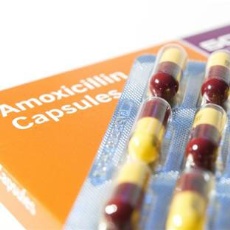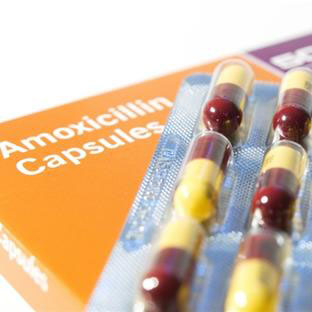
NICE appears to be playing hardball over GP antibiotic prescribing – but it is not clear why.
At a press conference to launch its new guideline, Professor Mark Baker, director of the centre for clinical practice at NICE, said ‘soft-touch’ GPs should face a GMC referral for ‘persistently’ prescribing the antibiotics inappropriately.
His comments were seized on by national media, with the front page of the Daily Mail declaring: ‘GPs face axe for handing out too many pills’.
Professor Baker’s comments went much further than the actual guideline the press conference was intended to promote. And Pulse has also learned the figures on ‘inappropriate’ prescribing used at the press conference were based on ‘expert opinion’ rather than on any concrete evidence.
This would seem to add up to a bizarre attack on the profession when official figures show GP antibiotic prescriptions are actually falling.
The situation provoked fury at the BMA, which demanded urgent talks with NICE. The regulator later released a clarification, saying it wanted to ‘support not admonish’ GPs, but did not take back Professor Baker’s comments. And GP leaders say the row over GMC referral has scuppered a key opportunity for NICE to work with the profession to tackle rising resistance rates.
‘Soft-touch GPs should face a GMC referral’
Professor Mark Baker, NICE
The new guideline itself simply reiterates established advice to withhold antibiotics in self-limiting illnesses and to consider delaying the drugs where it is clinically safe to do so. It also recommends that GPs be issued with individual reports on their antibiotic prescribing and says the NHS should ‘encourage a culture’ where colleagues question one another on their antibiotic prescribing if they are ‘not in line with… guidelines and no reason is documented’.
Professor Baker explains to Pulse: ‘If the measures we’re proposing are put in place, then the prescribing of antimicrobials practised by every practitioner will be available to form part of their annual appraisal documentation – and outliers can be identified and in some cases will be taken further at a local level.’
He adds: ‘For “persistent offenders” the ultimate sanction would be a referral to the GMC under its performance procedures. But it’s only very rarely that they ever get to a panel, as the vast majority of doctors are wise enough to change their practice before it gets that far.’
And although the GMC says that it should not be about ‘pursing individual doctors’, chief executive Niall Dickson adds that annual appraisals, as part of the revalidation cycle, offer a ‘valuable opportunity’ for GPs to reflect on all aspects of practice including their prescribing – adding that ‘we would expect doctors would undertake any further training that might be identified as part of that process’.
The guideline comes after a concerted effort to crack down on antibiotic prescribing, ever since the chief medical officer described the problem of resistance as a ‘catastrophic threat’ to health in 2013. That year, the Government released its Five Year Antimicrobial Resistance Strategy and Public Health England (PHE) followed up with its own plan last year.
GP prescribing is falling
PHE had planned to publish practice-level antibiotic prescribing data from April this year but this has yet to materialise. It promised that individual GP data would be published ‘in due course’.
But GP prescribing of antibiotics is actually on the way down. Data released last year showed that GP prescribing rates fell by 3.5% from 2012 to 2013, compared with a comparable rise in hospital prescribing.
And NICE bosses have no published data to support their claim that ten million ‘inappropriate’ prescriptions – which represents a quarter of all antibiotic prescriptions in the NHS – could be cut if its guidance was followed. Pulse has learned from NICE that this was an estimate made by an expert adviser to the Department of Health and is ‘at the far end of plausibility’ (see box, page 20), although it has gained wide currency in the national press.
Nevertheless, the DH has set a target for primary care prescribing to return to 2009/10 rates by 2018/19 and there have been rumours of contractual incentives to achieve this. In this environment, the NICE guideline on antimicrobial stewardship should have marked a moment for GPs to benefit from evidence-based advice on how to reduce their prescribing.
Are GPs prescribing large amounts of antibiotics in appropriately?
There limited evidence to support the draconian stance that NICE is taking on antibiotics.
A study of NHS antibiotic prescribing between 1995 and 2011 by Public Health England (PHE) and University College London researchers found half of all patients with a cough or cold were prescribed an antibiotic.
Data from 2011 in the same study also found that among patients given an antibiotic for a sore throat, more than 30% received one not recommended in national guidance.
Another study from 2014 concluded: ‘Most UK general practices prescribe antibiotics to young and middle-aged adults with respiratory infections at rates considerably in excess of what is clinically justified. This will fuel resistance.’
But a later report from PHE, published last year, noted that GPs’ antibiotic prescribing declined in 2013, compared with significant increases in other prescribers, particularly dentists and walk-in centres.
And NICE has struggled to support its claim that its guidance could cut prescriptions by ten million – a quarter of those handed out in a year. A NICE spokesperson said: ‘That was an estimate based on expert opinion from advisors to the Department of Health.’
Sources: NICE, Eur J Gen Prac 2015:21;118-123, J Antimicrob Chemother 2014;69:3423-30, BMJ Open 2014;4:e006245
Lost opportunity
Instead, they have been completely overshadowed by injudicious words by one of NICE’s top officials.
Dr Andrew Green, the chair of the GPC’s clinical and prescribing subcommittee, says: ‘It was a great shame that the opportunity for a mature public debate was spoiled by one individual’s unguarded comments.
‘We could have seen NICE, the BMA, PHE and the RCGP standing together and saying: “Here’s a real problem, we all need to co-operate to reduce prescribing, let’s talk about how we can make this happen. If GPs take care with their decision-making and restrict their prescribing then we will all stand behind them”.
‘That one-off chance was lost.’
RCGP vice-chair Professor Tim Ballard says a ‘societal change’ is needed regarding the use of antibiotics. He adds that ‘any suggestion that hard-pressed GPs – who are already trying to do their jobs in increasingly difficult circumstances – will be reported to the GMC is counterproductive and unhelpful’.
Multifaceted feedback
Professor Azeem Majeed, professor of primary care at Imperial College London, and a GP in south London, agrees: ‘The [NICE] guidance is fairly clear, positive and sensible. It doesn’t actually make mention of any GMC sanctions but the press coverage has focused on that.
‘We know from previous research that multifaceted feedback is better rather than such an extreme response. I think most doctors would be supportive of the actual guidelines – they are aware of problems with resistance and try to limit their antibiotic use… the UK is below average for antibiotic use in Europe already.
‘The media seem to have picked up on GPs prescribing unfairly – drug resistance is higher in hospital settings rather than primary care.’
The BMA itself supports issuing GPs with individual prescribing reports. Dr Green says that this – combined with a national advertising campaign for patients – would make a positive difference.
He says: ‘I firmly believe that reflecting GPs’ prescribing back to them in a supportive manner, with adequate educational materials and with protected time to look at the data, will result in change.’
And NICE says it is working on advice for patients, which it expects to publish next year.
Despite these encouraging steps, GPs fear a real opportunity to engage the profession in the fight against antimicrobial resistance may have been squandered. NICE needs to ask itself some searching questions about its approach.
• Additional reporting by Sara Naraghi
What the NICE guidance actually says
- Commissioners should have an antimicrobial stewardship programme and consider including ‘regular feedback’ on individual prescribing and any patient safety incidents related to antimicrobial use or infections.
- Antimicrobial stewardship teams ‘should work with prescribers to explore the reasons for very high, increasing or very low volumes of antimicrobial prescribing’.
- They should also provide feedback and advice to those who prescribe antimicrobials ‘outside of local guidelines when this isn’t justified’.
- When deciding whether or not to prescribe an antimicrobial, take into account the risk of antimicrobial resistance for individual patients and the population as a whole.
- For patients in primary care who have recurrent or persistent infections, consider taking microbiological samples when prescribing an antimicrobial and review the prescription when the results are available.
- For patients who have non-severe infections, consider taking microbiological samples before making a decision about prescribing an antimicrobial, providing it is safe to withhold treatment until the results are available.
- Consider point-of-care testing in primary care for patients with suspected lower respiratory tract infections as described in the NICE guideline on pneumonia.
- When prescribing is outside local (where available) or national guidelines, document in the patient’s records the reasons for the decision.
Source: NICE antimicrobial stewardship guideline, Aug 2015
Visit Pulse Reference for details on 140 symptoms, including easily searchable symptoms and categories, offering you a free platform to check symptoms and receive potential diagnoses during consultations.

















